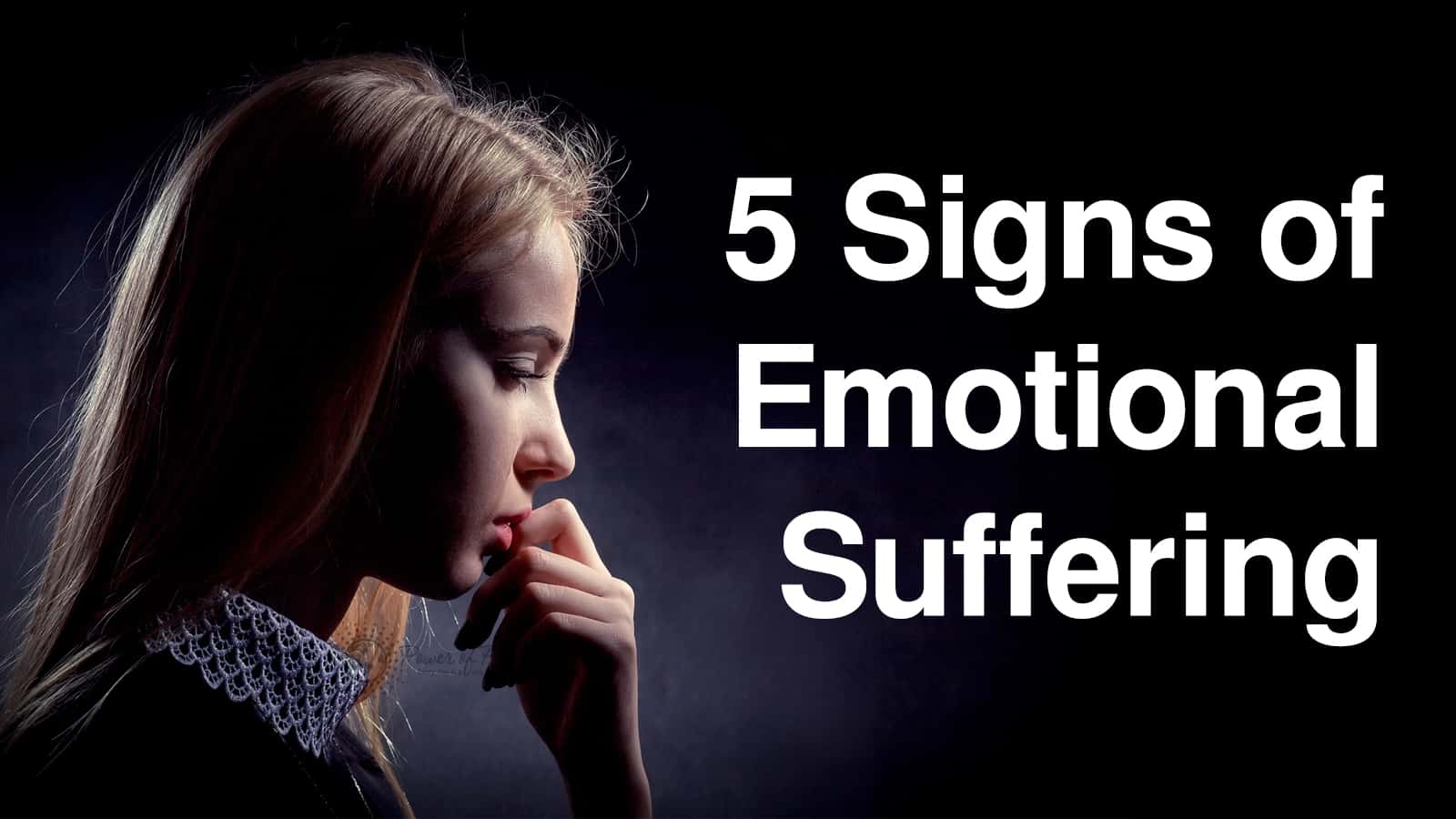Life has a way of changing us with each passing event. We are made stronger because of the struggles. We become resilient because of the lessons. However, there are folks out there who suffer from mental illness and disorders. These people are often discarded. Then there are others who are undergoing tremendous emotional suffering and it’s masked as something else. According to the U.S. Department of Health and Human Services, nearly one in every five people (or 42.5 million American adults) suffers from a diagnosable mental health condition. Often close friends or family members do not recognize the changes in behavior until it is too late. Check out the 5 signs that can help determine if your loved one needs help.
5 Signs of Emotional Suffering
1. They have sudden personality changes.
This may come about gradually, but it isn’t until the changes are major that you begin to take notice. Someone who has always been outgoing and positive starts to withdraw in public. This person doesn’t go out much, or interact with others the way they used to. Sudden changes can be triggered by emotional pain. It’s not that they do this purposely. It’s a fight or flight response and they choose to stay away from others. The feeling of dread affects their outlook and they simply cannot connect with other people.
2. They seem angry, agitated, and have emotional mood swings.
This person might have become obsessed with problems and react with agitation. They become anxious around others. They have bursts of mood swings from high to low and will become explosive and irrational. Hurt appears in many forms and anger is just the fuel to get the emotions out. Sleep patterns also change. They either sleep too much, or suffer from insomnia. When there is no relief from the pain, they will reach out to numb it through alcohol, drugs, food, sex or other destructive behaviors. Keep an eye for destructive patterns which can only be hidden for so long. These feelings, like explosive anger, are loud cries for help. Also be sure to notice changes in the body: are they hurting themselves, are they breaking out in hives, is their health deteriorating?
3. They isolate themselves.
Someone who loves to be around others now barricades themselves in their home. They don’t visit anyone and will not go out to gatherings. They might even stop going to work or school. Depression hits with exhaustion and talking becomes too much. Notice if this person starts to dwell and obsess over things. Do they blame themselves for everything? Do they keep talking about past events? Their minds become their biggest and deadliest enemy. They begin to circle out of control. It’s important to redirect their attention with some entertainment.
4. They have poor self-care.
They stop taking care of themselves. This person might also engage in activities of poor judgment. An extreme change in personality can create many levels of self-care. They will stop taking showers, or become radically obsessive about cleanliness. Someone who loves exercise and suddenly stops is also a sign of poor self-care. Exercising becomes a chore. It takes everything in their power to clean house or take showers. They have food all over the place. They either eat too much, or forget to eat at all.
5. They are over-whelmed by circumstances.
This person may seem overcome by helplessness and sadness. They could be suffering from a trauma that is resurfacing or extreme grief. Or they might be experiencing self-worth issues, shame and guilt. They begin to talk about suicide in small passing comments, as they start to believe that life is better without them. Do not take these comments lightly!
Related article: 5 Warning Signs of Depression
These are not attention-seeking gestures. Depression, sadness, grief, loss, and mental disorders are to be taken seriously. Your job is not to fix the problem or try to make the person see things your way. You job is to get them help. It’s important to seek counseling or medical expertise. In an article in PsychCentral, therapist Margarita Tartakovsky shares how to deal with someone who is suffering from depression. These points are also helpful when dealing with any kind of emotional suffering, traumas, loss, or changes:
– Be there for the person even if it’s just sitting in silence with them.
– Try doing small gestures to help them, whether it’s sending a card, cooking or leaving them a sweet message.
– Do not judge or criticize their situation.
– Don’t minimize or disregard their pain.
– Do not try to fix the problem or compare your experiences with theirs.
– Be patient with your loved one. Patience is underrated. It’s important to give someone space to grieve accordingly.
Emotional suffering affects us in many different ways and levels. Be an inspiration to them. Give them time and compassion. Connect, reach out, and allow them to let you help them in the road to recovery. Remember that the best gift sometimes is in knowing you are not alone through these debilitating moments.












 Community
Community

